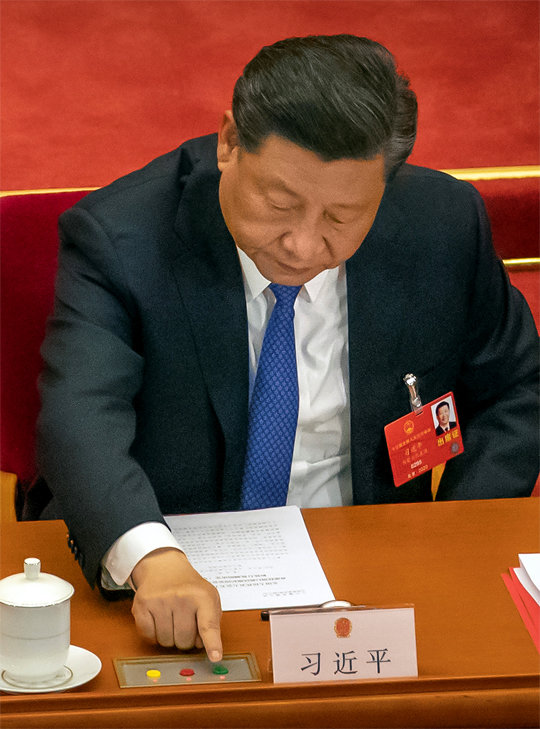‘Hong Kong security law’ violates the agreement with the U.K.
‘Hong Kong security law’ violates the agreement with the U.K.
Posted May. 29, 2020 07:34,
Updated May. 29, 2020 07:34

The Chinese parliament voted on the draft of a national security law for Hong Kong in the closing session of the National People’s Congress (NPC) despite concerns and opposition of the international community. Once finalized by the Standing Committee of the NPC, the legislation will be enacted as part of the “supplementary provision 3.” The new law, which is the first legislation China created for Hong Kong since its handover in 1997, is more comprehensive and draconian than the “extradition bill,” a bill that could not move forward due to protests last year.
The Hong Kong security law defines separatism, subversion and terrorism, which will be subject to a prison sentence of up to 30 years. Most countries have national security laws as Beijing argues. However, China is notorious for having broad definitions of legal terms and does not have an independent legislature, which means it can interpret and apply the law however it wants to satisfy its political needs. There is broad consensus across the globe that the new law will undermine Hong Kong’s freedom of expression and protest.
China’s move breaches Hong Kong’s “Basic Law” to which it agreed. Article 23 of the law stipulates that a law banning acts of separatism and treason could be established but only by Hong Kong. Hong Kong’s authorities attempted to enact a relevant law back in 2012 as Macao did but failed due to strong resistance from the public. China imposing a law on the city and trying to have its own law enforcement agencies in it is in direct violation of the one country, two systems framework, which it agreed to and is effective until 2049.
China has been denying the 2017 ruling of the Permanent Court of Arbitration (PCA) in The Hague, the Netherlands as well. The Philippines filed an arbitration case against China concerning the South China Sea in 2013, and the PCA ruled in favor of the Philippines. We should not condone China’s attempt to violate the agreement. By pressuring China to follow through its promises, not only will we stand in solidarity for Hong Kong’s freedom, but it also allows neighboring countries including South Korea to ensure security.
Ja-Ryong Koo bonhong@donga.com







